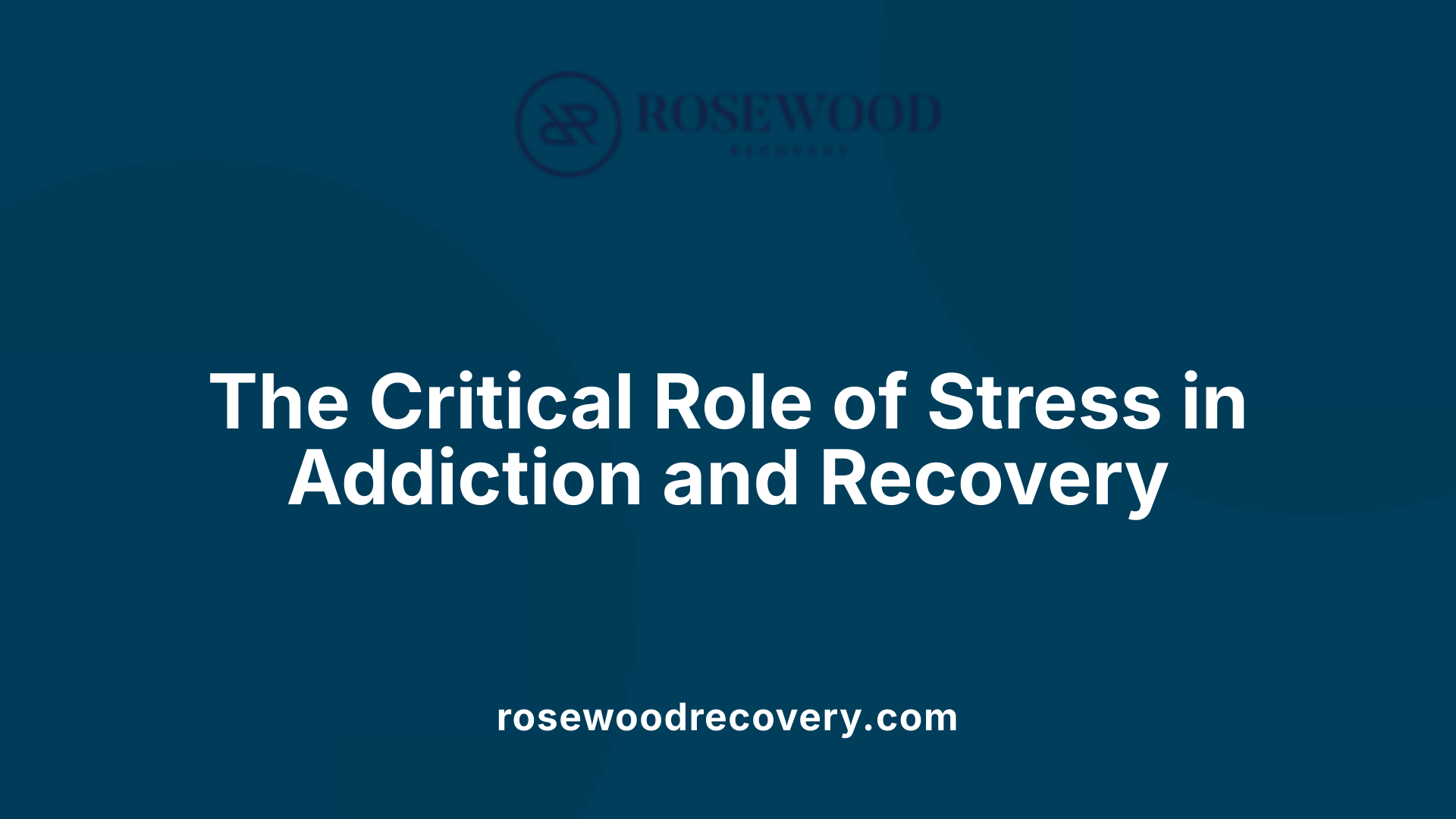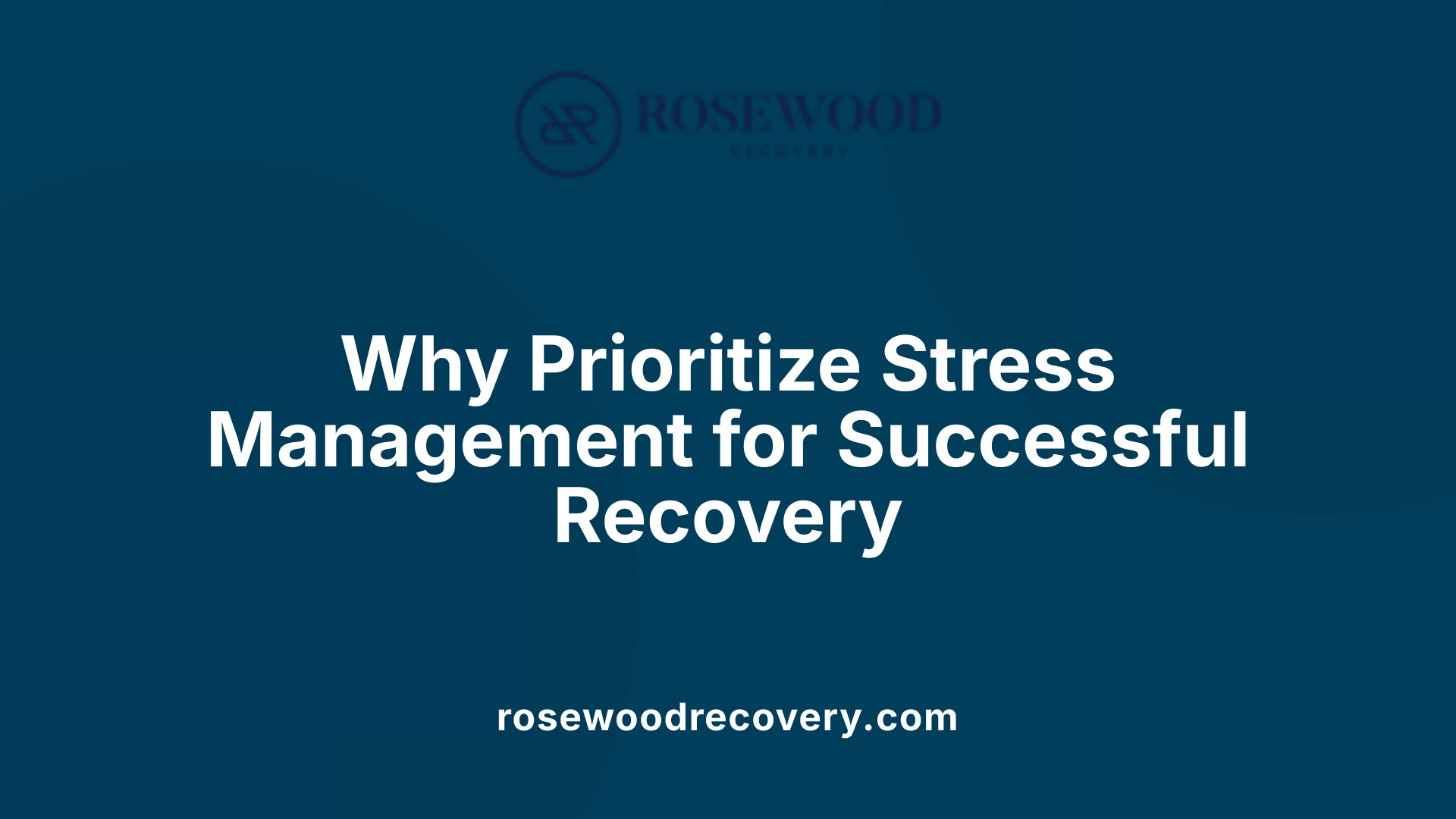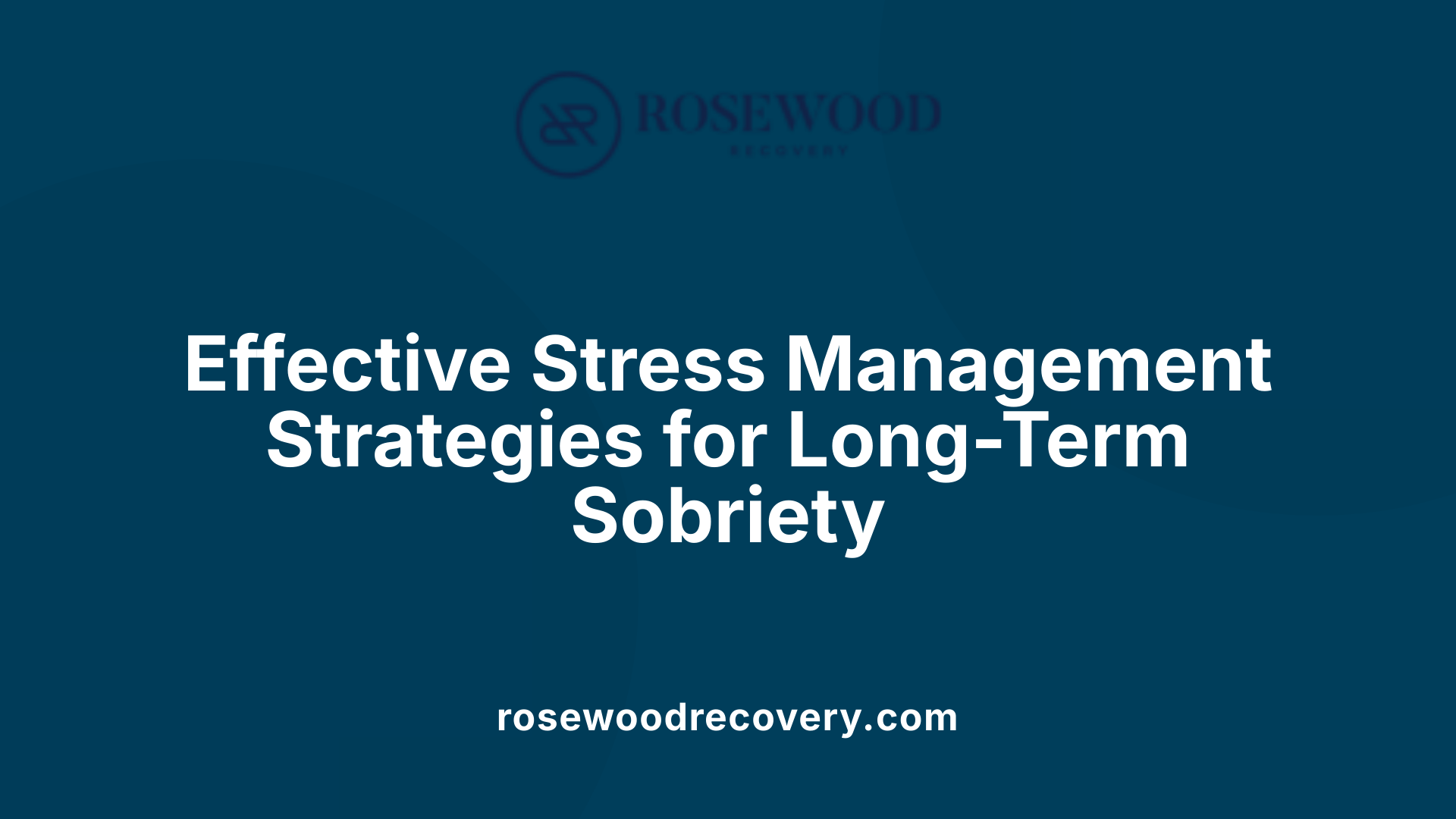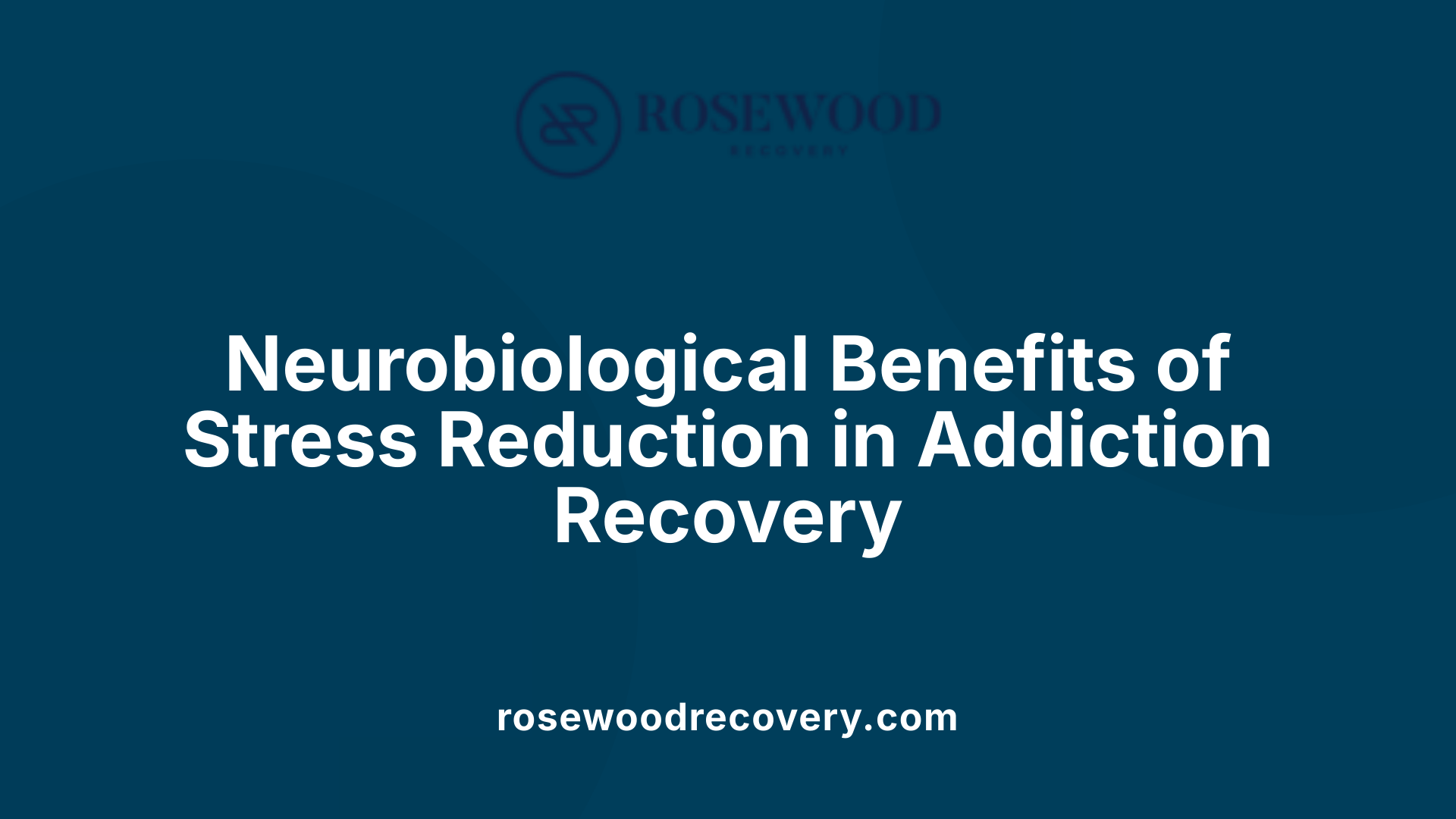Understanding the Critical Link Between Stress and Addiction
Stress is a major contributor to the initiation, maintenance, and relapse of substance use disorders. It acts as both a trigger and a barrier within the recovery process, influencing neurochemical systems and emotional well-being. Recognizing the profound impact of stress on addiction underscored the importance of incorporating stress management into comprehensive treatment plans, aiming to support long-term sobriety and overall health.
The Impact of Stress on Addiction and Recovery

What is the impact of stress on addiction and recovery?
Stress plays a significant role in both the development and maintenance of addiction. High stress levels often lead individuals to seek relief through substances, which can result in dependency. Stress triggers the release of hormones like cortisol, which influence brain chemistry and increase cravings for drugs or alcohol.
During recovery, stress remains a major challenge. It can cause physical discomforts such as sleep disturbances, headaches, muscle tension, and gastrointestinal issues. These symptoms can undermine focus and weaken the body’s resilience. Psychologically, stress can lead to anxiety, depression, irritability, and reduced motivation—factors that make staying sober more difficult.
Unchecked stress can also activate brain pathways associated with reward and reinforcement, increasing the temptation to relapse. Animal studies and human research confirm that both immediate and ongoing stressors influence the initiation, use, and relapse of substances. Therefore, effective stress management strategies—including physical activity, mindfulness practices, social support, and therapy—are vital. They help reduce cravings, improve emotional stability, and promote long-term sobriety.
Implementing these techniques not only alleviates strain but also enhances an individual’s capacity to handle life’s challenges without turning to substances. Recognizing the importance of managing stress helps ensure that recovery efforts — supported by medications, psychosocial therapy, and strong support networks — are more effective. Ultimately, controlling stress is essential for maintaining mental health and preventing relapse, facilitating sustained recovery and a healthier life.
Why Stress Management During Recovery Is a Key to Success

Why is stress management important during addiction recovery?
Managing stress effectively is vital in the journey of recovery from addiction. High stress levels can significantly increase cravings for substances, serving as triggers for relapse. When individuals encounter stressful situations such as work pressures, relationship problems, or financial concerns, they may turn to alcohol or drugs as a way to cope.
By integrating stress reduction techniques like mindfulness, meditation, and exercise, individuals can better handle these pressures without resorting to harmful substances. Reducing stress not only minimizes cravings but also boosts mental health, helping to stabilize mood and prevent feelings of anxiety or depression.
Furthermore, managing stress enhances emotional resilience, making it easier to face everyday challenges. This supportive mental state encourages sustained sobriety and fosters a more positive outlook on recovery.
Incorporating strategies such as healthy routines, social support, and professional counseling plays a crucial role in this process. Overall, focusing on stress management improves the effectiveness of recovery efforts by reducing relapse risks and promoting long-term well-being.
How Stress Influences the Relapse Process

How does stress influence the relapse process?
Stress plays a crucial role in triggering relapse among individuals recovering from addiction. Elevated stress levels can lead to intense cravings for substances as a way to cope with overwhelming emotional and physical discomforts. Stress activates neurochemical systems in the brain, such as the hypothalamic-pituitary-adrenal (HPA) axis, resulting in the release of hormones like cortisol, which can alter brain chemistry and increase drug-seeking behavior.
People in early recovery are particularly vulnerable, as their emotional resilience is still developing, making stress a major obstacle in maintaining sobriety. Without proper stress management, small stressors—such as work pressures, conflicts, or financial worries—can accumulate, intensifying feelings of frustration, anxiety, or depression that may prompt relapse.
Research demonstrates that stress not only heightens cravings but also impairs mental clarity and emotional regulation. Laboratory and brain imaging studies show heightened activity in brain reward pathways during stressful conditions, which makes substance use more appealing as a form of relief.
Importantly, incorporating stress reduction practices like mindfulness, physical activity, and strong social support within recovery routines can mitigate these risks. Addressing stress effectively enhances resilience, reduces cravings, and creates a more stable foundation for long-term sobriety.
In conclusion, managing stress is essential for relapse prevention. By understanding the connection between stress, neurobiological changes, and cravings, individuals can adopt targeted strategies to improve their chances of staying substance-free.
Strategies and Techniques for Effective Stress Management

What strategies and techniques can be used for effective stress management during recovery?
Managing stress effectively is critical for individuals on the path to sobriety, as high stress levels can trigger relapse or hinder progress. A multifaceted approach tailored to individual needs generally offers the best results.
One of the most accessible and calming methods is practicing mindfulness and meditation. These techniques help center the mind, reduce the body's stress response, and promote emotional clarity. Deep breathing exercises are also highly effective for calming the nervous system and releasing physical tension.
Physical activity plays a vital role in stress reduction. Regular exercise not only improves physical health but also releases endorphins, natural mood lifters that combat anxiety and depression. Complementing exercise with healthy lifestyle habits—such as a balanced diet, adequate sleep, and hydration—bolsters overall resilience.
Developing healthy coping skills is another cornerstone of stress management. This can include problem-solving to address actual stressors or setting boundaries to reduce unnecessary stress. Engaging in hobbies, journaling, or spending time with supportive loved ones can also promote emotional well-being.
Seeking professional help remains essential for personalized support. Healthcare providers or counselors can offer tailored strategies, including therapy or medication when appropriate, to address chronic or overwhelming stress.
By combining these approaches—mindfulness, physical activity, lifestyle habits, and professional guidance—individuals in recovery can better manage stress, minimize triggers, and support their long-term sobriety.
Neurobiological Insights and the Role of Stress Reduction Techniques

What is the role of stress reduction techniques in influencing addiction outcomes?
Stress reduction methods are essential tools in improving recovery from addiction because they directly impact the brain's neurobiological processes affected by stress.
One fundamental aspect involves the hypothalamic-pituitary-adrenal (HPA) axis, the body’s central stress response system. When activated by stress, the HPA axis releases hormones like cortisol, which can alter brain chemistry and increase cravings for substances. Stress management techniques help regulate this system, reducing cortisol levels and stabilizing neurochemical balances.
Various practices such as mindfulness, meditation, and physical activity influence neuroplasticity—the brain's ability to adapt and recover. These methods help attenuate hyperactivity in brain regions linked to stress and reward, including the amygdala, prefrontal cortex, and nucleus accumbens. By calming these areas, individuals experience fewer emotional triggers that could lead to relapse.
Research shows that consistent use of stress reduction strategies promotes healthy neural adaptations, enhancing emotional regulation and resilience. They can also normalize functioning within neurochemical systems like serotonin, dopamine, and endocannabinoids, which are vital in mood regulation and addiction pathways.
In addition, techniques such as yoga, deep breathing, and massage can directly influence the brain's neurochemical environment, fostering a sense of calm and reducing the intensity of cravings.
Overall, these interventions reduce the vulnerability to relapse by stabilizing neurobiological pathways disrupted by stress, making them vital components of comprehensive addiction treatment.
| Neurobiological Aspect | Effect of Stress Reduction Techniques | Additional Details |
|---|---|---|
| HPA axis regulation | Decreases cortisol production | Normalizes stress response pathways |
| Brain regions involved | Reduces hyperactivity in amygdala, prefrontal cortex, nucleus accumbens | Decreases emotional reactivity and craving |
| Neurotransmitter balance | Promotes healthy levels of serotonin, dopamine, and endocannabinoids | Enhances mood and motivation |
| Neuroplasticity | Encourages adaptive neural changes | Supports recovery and resilience |
How do stress reduction techniques influence neuroplasticity and relapse risk?
By promoting neuroplasticity, stress reduction methods help rewiring brain circuits that have been disrupted by addiction and stress. These changes strengthen circuits responsible for self-control and emotional stability, lowering the chances of relapse.
Normalizing neurochemical responses, especially in the reward and stress-related pathways, reduces cravings and the emotional upheaval caused by stress. This stabilization makes it easier for individuals to cope with everyday challenges without resorting to substances.
In essence, integrating these techniques into recovery programs offers a neurobiological safeguard against relapse, empowering individuals with healthier responses to stress and emotional triggers.
Building a Foundation for Lasting Sobriety
Integrating effective stress management strategies into addiction treatment is essential for promoting sustained recovery. Understanding the neurobiological, psychological, and behavioral impacts of stress highlights the importance of tailored stress reduction techniques such as mindfulness, physical activity, and social support. Addressing stress not only reduces the risk of relapse but also enhances overall well-being, resilience, and quality of life. Building a comprehensive stress management plan, involving professional guidance and ongoing support, can empower individuals to face life's challenges confidently, fostering a healthier, substance-free future.
References
- The Impact of Stress on Addiction and Recovery - BrightView
- Maintaining Sobriety in Times of Stress - Ashley Addiction Treatment
- The Role of Stress in Alcohol Use, Alcoholism Treatment, and Relapse
- Understanding the Role of Stress in Addiction and Recovery
- Guide to Stress Management in Recovery - Northpoint Westminster
- Understanding the Impact of Stress on Substance Abuse
- Managing Stress in Recovery
- Interaction Between Stress and Addiction: Contributions From Latin ...
- The neurobiology of addiction - PMC - PubMed Central
- Stress and substance use disorders: risk, relapse, and treatment ...




